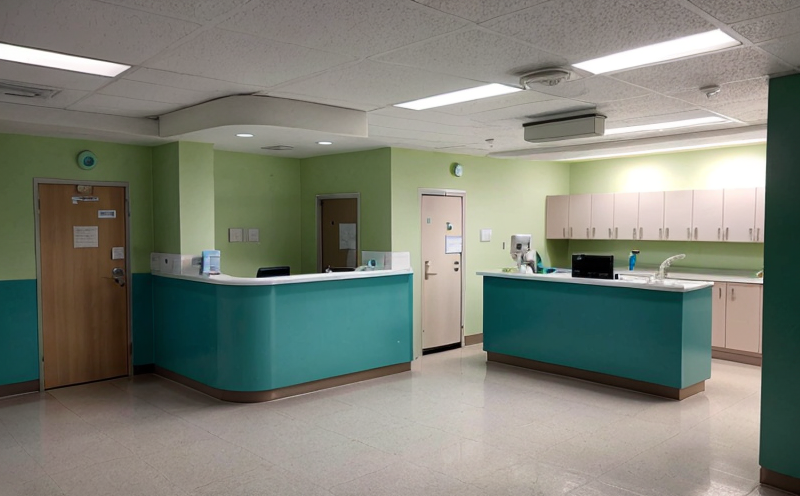Codex Alimentarius Microbiological Safety in Hospital Food Services
The Codex standards are widely recognized for setting international food safety and quality criteria. In the context of hospital food services, ensuring microbiological safety is paramount to protect patient health. This service focuses on compliance with Codex Alimentarius requirements through comprehensive microbial testing.
The Codex Alimentarius sets the Codex General Principles that outline good manufacturing practices, hygiene measures, and other aspects critical for food safety. In healthcare settings, these principles are crucial to prevent contamination of food served to patients who may be immunocompromised or have compromised immune systems.
Hospital food services must ensure that all food prepared and served meets the highest standards of microbiological quality. This service provides a detailed approach tailored specifically for this sector using the Codex Alimentarius guidelines as the foundation.
One of the key aspects is ensuring that pathogens like Listeria monocytogenes, Salmonella spp., and E. coli O157:H7 do not contaminate food items. This service also covers other potential hazards such as Campylobacter jejuni and Vibrio parahaemolyticus. The testing process involves collecting samples from various stages of the production line, including raw materials, finished products, and environmental surfaces.
The laboratory adheres to international standards, ensuring that all tests are conducted in accordance with ISO 17025. This guarantees the reliability and accuracy of the results produced. By following these rigorous protocols, we provide healthcare providers with confidence that their food services meet or exceed Codex Alimentarius requirements.
Sample preparation plays a critical role in achieving accurate test results. Samples are typically collected using sterile techniques to avoid contamination during collection. Once collected, they undergo appropriate preservation steps before analysis. Various methods may be employed depending on the type of sample and the pathogen being targeted, including but not limited to enrichment broth culture or direct plating onto selective media.
The testing process itself involves several stages. Initially, there is identification of potential contaminants followed by quantification where necessary. For certain pathogens like Listeria monocytogenes, specific enrichment steps are required before enumeration can occur. Once identified and enumerated, the results are reported according to Codex Alimentarius guidelines.
Reporting of findings is a critical part of this service. Results are presented clearly and concisely in accordance with Codex Alimentarius standards. This includes details about which samples tested positive for any pathogens along with their levels if applicable. Additionally, recommendations may be provided based on these results aimed at improving food safety practices within the hospital setting.
By adhering strictly to Codex Alimentarius guidelines and using advanced laboratory techniques, this service ensures that hospitals can maintain high standards of microbiological safety in their food services. This not only protects patients but also enhances public trust in healthcare institutions across different countries around the world.
Industry Applications
- Hospital kitchens and cafeterias
- Nursing homes and care facilities
- Medical research laboratories
- Pharmaceutical manufacturing plants
The Codex Alimentarius microbiological safety testing service is particularly relevant for organizations involved in food preparation for vulnerable populations. Hospitals often have multiple departments where patients with different medical conditions require specialized diets, making it essential to ensure that all food items are safe from microbial contamination.
This service can also be beneficial for pharmaceutical manufacturers who need to comply with stringent hygiene requirements during drug formulation processes. In addition, research labs might use this testing method when developing new formulations or refining existing ones.
Quality and Reliability Assurance
- All tests are conducted in accordance with ISO 17025, ensuring reliability and accuracy of results.
- Sample preparation techniques minimize contamination risks throughout the process.
- Use of advanced laboratory equipment ensures precise measurements and accurate determinations.
- Data analysis follows internationally accepted practices to provide consistent outcomes.
The use of ISO 17025 accreditation highlights our commitment to delivering reliable results. This certification indicates that we have met strict quality management system requirements, personnel qualifications, and operation criteria. By adhering strictly to these standards, we ensure that every test result is accurate and can be trusted.
Sample preparation is another crucial aspect of maintaining reliability in testing. Proper handling methods reduce the risk of introducing contaminants into samples before analysis begins. Advanced equipment further enhances precision by providing consistent measurements across multiple tests. Finally, thorough data analysis ensures consistency in determining whether results meet specified criteria set out by Codex Alimentarius.
Environmental and Sustainability Contributions
This service contributes positively to both environmental sustainability and healthcare quality. By ensuring that hospital food services meet strict microbiological safety standards, we help reduce the risk of outbreaks caused by contaminated food which could lead to unnecessary patient admissions or prolonged stays.
The use of advanced technology in our laboratory helps minimize waste generation while still achieving accurate test results. This aligns with broader healthcare sector goals towards greener operations and more sustainable practices. Furthermore, adherence to Codex Alimentarius guidelines supports global efforts towards safer food production across all sectors involved from farm to fork.





